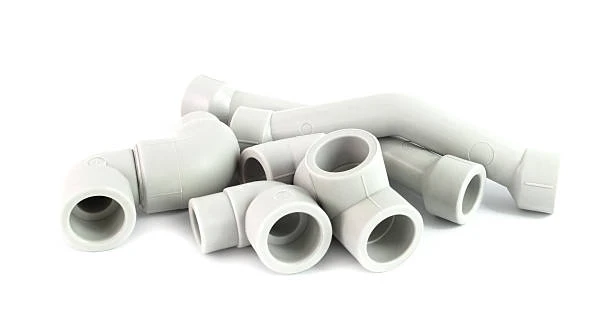PVC (Polyvinyl Chloride) pipe connectors have become a standard choice for water systems across the globe, primarily due to their affordability, ease of use, and long-term durability. Whether employed in residential plumbing, municipal water systems, or large-scale industrial applications, these connectors serve as an essential element in the efficient management and distribution of water resources. PVC connectors ensure that water flows smoothly through systems, promoting effective water resource management and reducing the risks of leaks, contamination, and system failure.

In this article, we will explore the benefits and applications of PVC pipe connectors in water systems. Highlighting their role in improving water infrastructure, ensuring safe water delivery, and contributing to sustainability.
The Role of PVC Pipe Connectors in Water Systems
PVC pipe connectors act as joining elements in piping systems, connecting pipes and ensuring a leak-free, seamless flow of water. These connectors come in various shapes and sizes, including couplings, elbows, tees, unions, and reducers, each designed for specific uses depending on the layout and requirements of the water system. The connectors work by securely attaching two or more pipes, allowing water to flow smoothly without interruptions or leaks.
One of the most significant advantages of PVC pipe connectors is their ability to form a strong bond with pipes, offering an effective and durable solution to connecting different parts of a water system.
Advantages of Using PVC Pipe Connectors
The widespread use of PVC pipe connectors in water systems is driven by several benefits that they offer over other types of materials. Some of the key advantages include:
1. Cost-Effectiveness
The low material and manufacturing costs make them a popular choice for both small-scale residential plumbing and large-scale municipal water systems. These connectors provide a cost-effective solution to water resource management without compromising on quality or performance.
2. Durability and Longevity
PVC pipe connectors are known for their exceptional durability. Unlike metal connectors, which are vulnerable to corrosion, PVC connectors maintain their integrity over time, even when exposed to harsh environmental conditions. PVC is resistant to chemicals, UV radiation, and weathering, making it ideal for outdoor and underground applications. The long lifespan of PVC connectors contributes to reduced maintenance costs and fewer replacements over the years.
3. Ease of Installation
Installing PVC pipe connectors is relatively straightforward and does not require specialized tools or expertise. The connectors typically use solvent welding or compression fittings to create a secure bond between pipes, ensuring a tight, leak-free connection. This ease of installation reduces labor costs and shortens installation time, making it a favored choice for contractors and homeowners alike.
4. Lightweight and Flexible
PVC connectors are lightweight, making them easier to handle, transport, and install. Their flexibility allows them to accommodate slight changes in the layout of the water system, reducing the need for complex modifications.
Applications of PVC Pipe Connectors in Water Systems
Below are some of the primary applications:
1. Residential Plumbing Systems
These connectors ensure smooth water flow and prevent leaks, ensuring a consistent supply of water for household use. Municipal water systems rely on extensive networks of PVC pipes and connectors to deliver potable water to homes, businesses, and public facilities.
2. Industrial Water Systems
In industrial applications, PVC pipe connectors are used in water distribution systems for cooling towers, factories, and water treatment plants. These systems often involve large volumes of water and require reliable, secure connections to prevent system failures. The durability and corrosion resistance of PVC connectors make them an ideal choice for industrial water systems, where the risk of system breakdown can lead to significant downtime and costs.
3. Irrigation Systems
PVC connectors are also commonly used in agricultural irrigation systems. They are used to connect pipes that carry water to crops, greenhouses, and landscaping areas. The efficiency and reliability of PVC connectors help optimize water use in irrigation systems.
Environmental Impact and Sustainability
PVC pipe connectors also contribute to sustainability in water systems. By preventing leaks and ensuring efficient flow of water, these connectors help reduce water wastage, a major concern in many parts of the world. The durability of PVC connectors also reduces the need for frequent replacements, contributing to less plastic waste over time.
Moreover, PVC is a recyclable material, and many manufacturers are adopting eco-friendly practices to minimize the environmental impact of PVC production. As water conservation becomes increasingly important, PVC pipe connector provide a long-term solution to managing water resources efficiently.
Reducing Risks of Contamination and Leaks
One of the key concerns in water systems is the risk of contamination or leaks that could compromise water quality. PVC pipe connector helps mitigate these risks by providing a strong, leak-resistant seal between pipes. The smooth interior surface of PVC pipes and connectors prevents the buildup of sediment, bacteria, or algae, ensuring that the water remains clean and safe for consumption.
Additionally, the corrosion-resistant properties of PVC eliminate the risk of rust or scaling, which can often occur with metal pipes and connectors.
Conclusion
PVC pipe connectors are essential components in modern water systems. Offering a reliable, durable, and cost-effective solution for water resource management. Their widespread use in residential, municipal, and industrial applications is a testament to their superior performance, longevity, and ease of installation. By ensuring leak-free connections, promoting efficient water flow, and reducing contamination risks. PVC connectors play a pivotal role in the sustainable management of water resources.
FAQ (Frequently Asked Questions)
Q: Are PVC pipe connectors suitable for high-pressure water systems?
A: Yes, PVC pipe connectors are suitable for most standard water pressure systems. In some cases, manufacturers may recommend using specific types of PVC or additional reinforcement for high-pressure applications.
Q: How long do PVC pipe connectors last?
A:Their durability and resistance to corrosion make them ideal for long-term use in both residential and industrial water systems.
Q: Can PVC pipe connectors be used for hot water applications?
A: PVC connectors are generally not recommended for hot water systems as they may warp or degrade under high temperatures. Always check the manufacturer’s specifications for temperature limits.